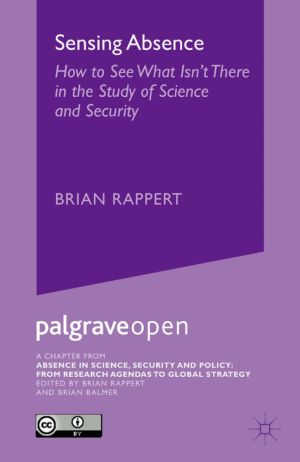Sensing Absence: How to See What Isn't There in the Study of Science and Security
by Brian Rappert
DescriptionDetailsHashtagsReport an issue 





Book Description
This is a chapter from Absence in Science, Security and Policy edited by Brian Rappert and Brian Balmer. Part reflection on the forthcoming chapters, part analysis of academic literature, and part programmatic agenda setting, this introduction chapter forwards the importance of questioning taken for granted assumptions in sensing what is absent as a concern. It undertakes this through initially examining what it means to characterize concern as absent or present in the first place. While absence and presence are often treated as binary opposites, it will be argued this distinction is difficult to sustain and unhelp for analysis. On the back of an appreciation of the inter-relation of absence and presence, this chapter then reviews the literature in sociology, ethics, STS and elsewhere relevant to the themes of the volume. A goal is to outline the methodological and epistemological possibilities and problematics of studying what is missing. By way of then proposing what is required, and to set the stage for the other chapters in Part 1, this chapter ends by asking how autostereograms provide a metaphor for viewing that can guide the study of absence.. You can download Sensing Absence: How to See What Isn't There in the Study of Science and Security ebook for free in PDF format (0.2 MB).
Book Details
Title
Sensing Absence: How to See What Isn't There in the Study of Science and Security
Subject
Philosophy
Publisher
Palgrave Macmillan
Published
2015
Pages
34
Edition
1
Language
English
ISBN13 Digital
9781137592613
ISBN10 Digital
1137592613
PDF Size
0.2 MB
License
Related Books
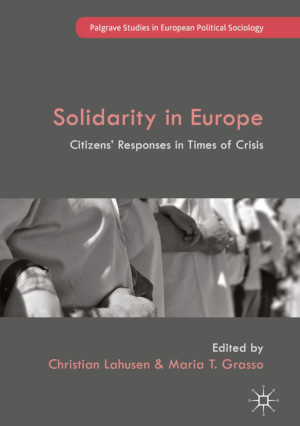
This open access volume provides evidence-based knowledge on European solidarity and citizen responses in times of crisis. Does the crisis of European integration translate into a crisis of European solidarity, and if yes, what are the manifestations at the level of individual citizens? How strongly is solidarity rooted at the individual level, bot...
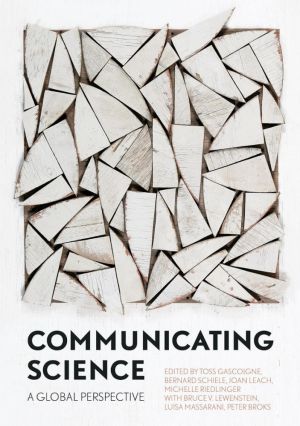
Modern science communication has emerged in the twentieth century as a field of study, a body of practice and a profession - and it is a practice with deep historical roots. We have seen the birth of interactive science centres, the first university actions in teaching and conducting research, and a sharp growth in employment of science communicato...
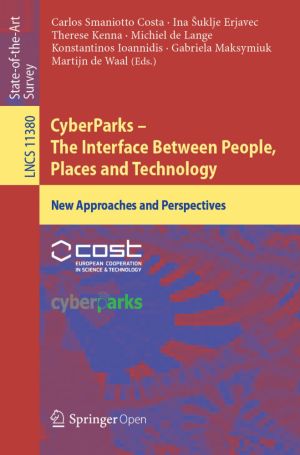
This book is about public open spaces, about people, and about the relationship between them and the role of technology in this relationship. It is about different approaches, methods, empirical studies, and concerns about a phenomenon that is increasingly being in the centre of sciences and strategies – the penetration of digital technologies in...
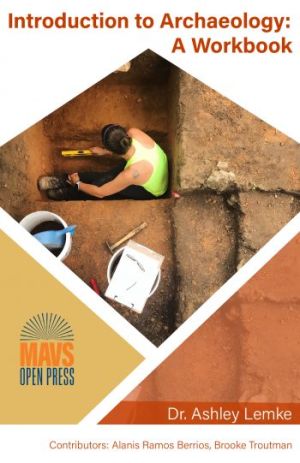
This workbook was designed for the Introduction to Archaeology (ANTH 2339) class in the Department of Sociology and Anthropology, University of Texas at Arlington. It was created to provide exercises that supplement and expand on topics and issues raised in lecture. For each major topic, students complete exercises that serve a range of functions; ...

How to Read a Folktale offers the first English translation of Ibonia, a spellbinding tale of old Madagascar. Ibonia is a folktale on epic scale. Much of its plot sounds familiar: a powerful royal hero attempts to rescue his betrothed from an evil adversary and, after a series of tests and duels, he and his lover are joyfully united with a marriage...
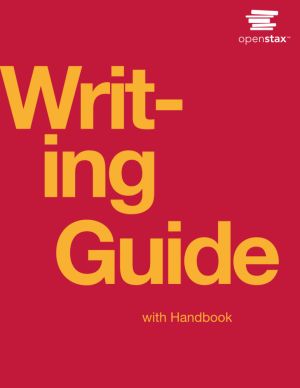
Writing Guide with Handbook aligns to the goals, topics, and objectives of many first-year writing and composition courses. It is organized according to relevant genres, and focuses on the writing process, effective writing practices or strategies - including graphic organizers, writing frames, and word banks to support visual learning - and conven...

